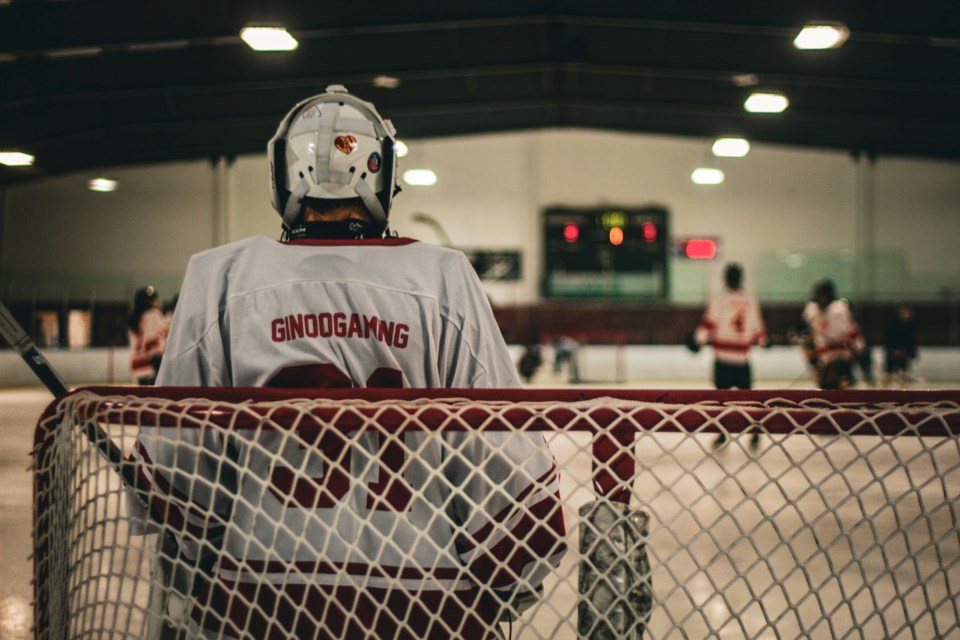THUNDER BAY — Youth from across Nishnawbe Aski Nation territory have gathered in Thunder Bay for a week-long hockey and broomball tournament that organizers hope doubles as a youth summit putting a focus on mental health.
The Tournament of Hope drew over 300 youth aged 13 to 19 to the city beginning on Monday, from numerous NAN communities like Sandy Lake, Fort Hope, Mishkeegogamang, Kashechewan, Long Lake #58, and Webequie.
Those participants will have plenty of time to play, but will also join workshops on everything from anti-bullying and healthy relationships to birch bark and language.
The event also offers opportunities that can be difficult or impossible to find up north, like a youth career fair, G1 drivers tests, a career fair, and SIN card registration.
Organizer Titus Semple said the tournament uses sports as a vehicle to bring youth together and provide access to important resources.
“Last summer, we were approached by some grassroots First Nations leaders that something needed to be done in regards to the recent rise of suicides over the last few months last summer,” he said. “They asked us if we could come up with something where we could provide an opportunity for kids to know they’re cared about and that they’re loved.”
There have been 670 youth suicides across NAN territory since 1986, organizers said, tragedies Indigenous leaders have linked to intergenerational trauma and a lack of resources, including mental health supports, on reserve.
As president of Semple Enterprises, a consultation and logistics company that works regularly with remote communities, Semple said he’d always aimed to use the business to support regional First Nations.
While the competition on ice can sometimes be fierce, participants agreed they were less focused on the scoreboard than the experience.
“We’ve had hockey games that are lopsided, there’s some close hockey games, but once these games are done, all the kids are still smiling. Nobody really cares about the games, to be honest with you,” he laughed. “Everyone’s just here having fun, hanging out with their friends, making new friends, and that’s our goal.”
Off-ice, keynote speakers and representatives from numerous organizations that work with First Nations youth all had roughly the same message.
“Our intention is to show these kids, especially the ones that are struggling mentally, that there’s others like you,” explained Semple. “You’re not alone, and it’s okay to reach out and ask for help — and the help will be there, if you just ask for it.”
Brady Leavold helped bring that message, backed by an NHL-prospect background, to the crowd of young athletes on Tuesday.
Leavold described how his inability to seek help and speak openly about traumatic childhood experiences had driven a struggle with addiction that derailed his hockey career and his life — and how he’d found his way back.
Una Gott, who accompanied her son to the tournament from Sandy Lake First Nation and served as a chaperone for the event, called the speech a great fit.
“When he was talking about addiction, his mental health — I think it’s super important, especially for kids on reserve, because there’s not a lot of help for them,” she said. “If they can see somebody like that overcome it and still play the game, love the game … then they’ll say, if he can do it, I can do it too.”
Tannis Smith coordinates in-person counselling teams with NAN Hope, a mental health support program for members across the organization’s 49 First Nations that provides 24/7 supports and crisis response.
She called the tournament a clear win, and hopes the concept can be expanded upon.
“I’m really impressed with the organizers and what they’ve done,” she said. “They’re not only just doing hockey, they’re implementing all this to help people know how to access services like the drive test, their identification, mental health needs, education and training.”
“If we just had a counselling session, we probably wouldn’t have 300 youth out here,” she laughed. “So you want to have something that captures their interest, but at the same time, okay, this is mandatory, you guys need to be here. Because then they listen, and hopefully if there are youth who are really struggling, which I know there are, they reach out and get the help they need.”
The tournament will conclude Saturday with championship games and a gala featuring a keynote by Brigette Lacquette, the first First Nations hockey player to be named to Canada's national women's team.
Semple hopes this week’s success will provide a “proof of concept” for the event. Organizers plan to compile data from the tournament for a report that will be presented to government leaders in hopes of finding support to make the tournament a permanent event.



